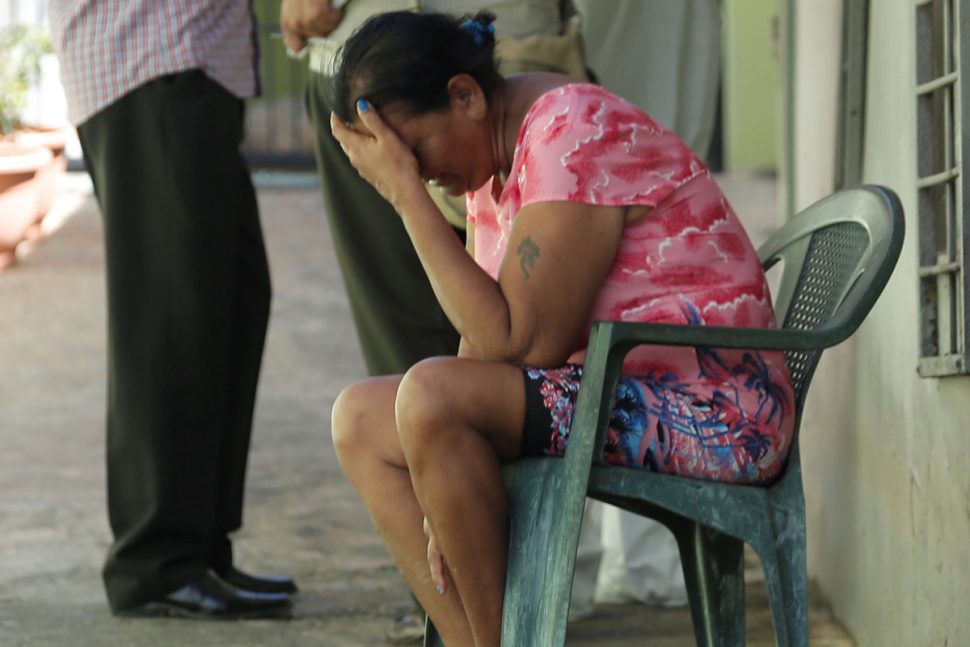(Trinidad Guardian) Trinidad & Tobago’s murder toll reached the 500 mark yesterday. However, despite the alarmingly high figure—the T&T Police Service said that the murder rate has decreased between the period August to December.
Domestic and gang-related incidents accounted for the most amount of murders in the country this year
Commissioner of Police (CoP) Gary Griffith said yesterday that reaching 500 homicides was a most unacceptable milestone for any country. The highest murder toll in T&T—550—was recorded in 2008, while the second highest figure—509—was recorded in 2009. Last year, 2017, the murder toll stood at 495.
CoP Griffith was appointed commissioner in August, taking over the helm from acting CoP Stephen Williams. Williams acted for several terms.
“Reaching 500 homicides is the most unacceptable milestone that any country can acquire. If anyone thinks that it can be changed to 250 in a few months, they are wrong.”
Over the last four months, however, he said there has been a gradual decrease in homicides in comparison to the same period last year, “with an over ten per cent reduction”.

“But I do not in any way see this as success. It is measured progress and the direction to drastically reduce violent crime.
“The end result after putting immense resources and policies both in law enforcement and social avenues to turn youths away from violent crime can be 150. But the last time we saw that was over 18 years ago. Things have changed. To get back there, all aspects of gang activity must be totally eliminated. That would take several years. 250 per annum can be an attainable goal in the near future but it takes a massive turnaround,” Griffith said.
Detection rate poor
Whilst the overall detection rate in the country is very poor, police said the Port-of-Spain Division (POSD) saw a 125 per cent increase in its detection rate this year. However, murders in that division have gone up from 36 to 42 over the corresponding periods for the years 2017 and 2018. In the Southern Division, from January 1 to December 8, 2018, there was a seven per cent decrease in homicides from 70 in 2017 to 65 in 2018.
- In May 2017 there were 49 murders in T&T while in May 2018 there were 59 murders–a 20 per cent increase.
- In June 2017 the murders recorded were 33 and in June 2018, 44—again, an increase of 33 per cent.
- In July 2017 there were 30 murders and in July 2018, 44—a 47 per cent increase.
- In August 2017 there were 43 murders as compared to 41 this year August, which represented a five per cent decrease.
- In September 2017 there were 48 murders, while in the corresponding period in 2018 there were 37 murders—a 30 per cent decrease.
- In October 2017 there were 40 murders, while in October 2018 there were 33 murders—a 21 per cent decrease.
- From August to November 2017 the murder toll was 166. However, under Griffith’s watch, the figure decreased to 157 in 2018.
The initiatives
In October during an interview, Griffith told the media the country was on the path to having over 600 murders recorded for the year. He, however, said that with the initiatives that he had implemented, there was a reduction in killings. He said then that there were over 70 other initiatives he intended to spearhead within a 12-month period.
He said he hoped for the country’s murder toll to return to an “acceptable level” of 150 per year.
Griffith did note that since August, the homicide rates had been decreasing on a month-to-month basis.
- One of the initiatives Griffith implemented was Operation Strike Back where scores of people have been arrested so far during anti-crime exercises on various offences including murders, robbery with violence, arms and ammunition, and narcotics.
- Another initiative was the Emergency Response Unit where a new fleet of police vehicles was despatched at strategic locations throughout the country, including in areas identified as “hot spots”.
A senior police officer, at the North Eastern Division, who wished not to be identified admitted that there are a few challenges that exist still but assured that police officers in the division were “going that extra mile in cracking down on all criminals and criminally-inclined activities”.
“I remember when there used to be a murder or two a day in Laventille and Morvant, now days pass by and no murders…that by itself shows you the success of police officers’ duties,” the senior officer said.








